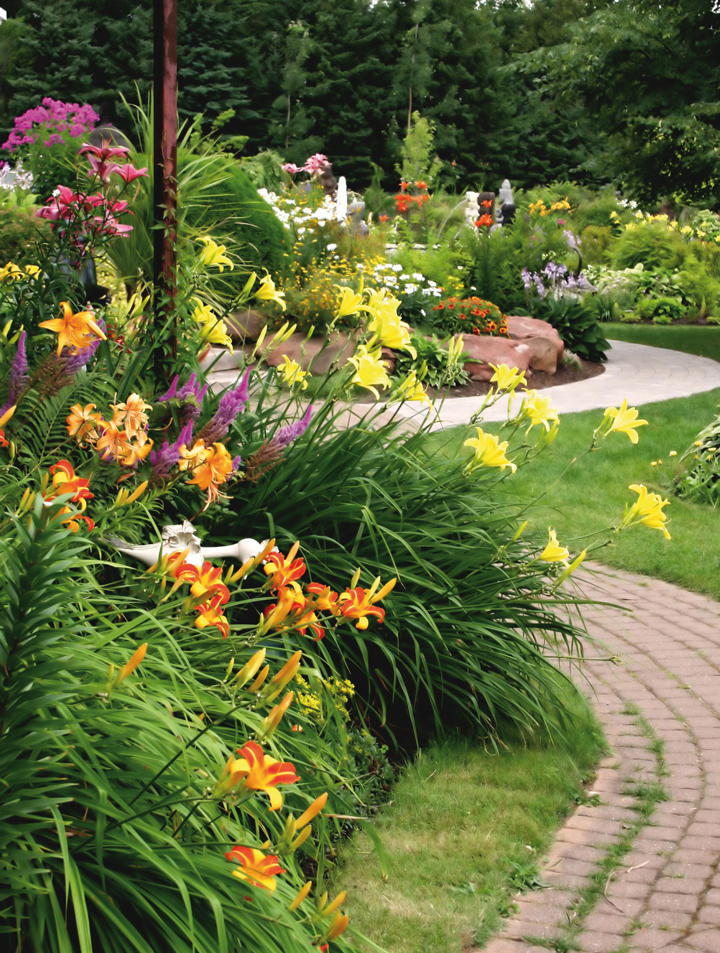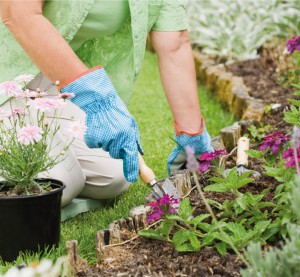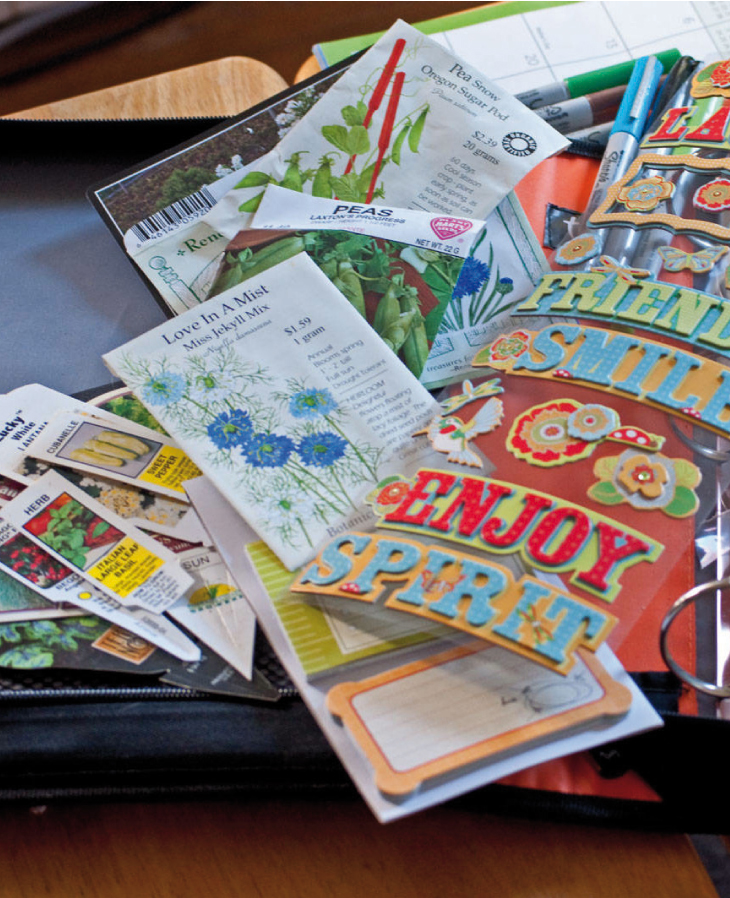How Does Your Garden Grow? Keep Track with a Garden Journal
 There’s an antique rose bush in the garden in front of my house. It sits between a massive rosemary plant that leans out of the flowerbed and over the lawn, seeking the sun, and another antique rose, a repeat-bloomer called “Marie Pavie.”
There’s an antique rose bush in the garden in front of my house. It sits between a massive rosemary plant that leans out of the flowerbed and over the lawn, seeking the sun, and another antique rose, a repeat-bloomer called “Marie Pavie.”
The rose of which I’m speaking has large, pink blooms, the kind with petals too delicate to make it into a vase intact. The only problem with the rose, I thought, as I pruned it this past February, was that I couldn’t remember its name. Several years ago, I’d made a diagram of my rose garden that would tell me what was planted where, but I couldn’t find it. So, I hit the Internet, and after some searching, discovered the mystery rose was a repeat-blooming polyantha called “The Fairy.”
In this situation, disorganized gardeners like myself might wearily wonder, “Oh, if only there were an easy way to keep track of all this stuff.” And not only that, but, “Was it groundhogs that ate the dahlias three summers ago? What did I use to cure black spot last year? What blooms in July?”
Fortunately, there is a way to keep track of all this, and it’s called a garden journal.
Founding Father and avid gardener Thomas Jefferson kept a handwritten garden journal for nearly 60 years. The journal includes Jefferson’s notations on everything from what was blooming to the weather, along with plans he sketched for Monticello’s gardens and orchards.
 Recently, envisioning the 21st-century version of such a journal, I set out to buy a garden journal to get myself organized. I envisioned a book complete with readymade spaces for notes, diagrams, and drawings or photos, hoping to find just what I needed at my local chain bookstore. Alas, I came up empty-handed from this search, and realized that I could certainly make my own. I did what anyone interested in instant gratification would do: I searched the Internet for garden journaling ideas where I hit the mother lode. There I found websites where you can buy journals made just for gardeners. Some had brightly colored drawings of snails, beehives, flowers and other garden-y things, along with helpful hints and plenty of space to document what you planted and how it performed. Others were more down-to-business: three-ring binders claiming to contain everything a gardener needs to “plan, plant, grow” and “record the results.” There were one-year, three-year and, for the optimistic, five-year journals. I also found “garden boxes” that included a journal along with little envelopes for those inclined to swap seeds with the neighbors.
Recently, envisioning the 21st-century version of such a journal, I set out to buy a garden journal to get myself organized. I envisioned a book complete with readymade spaces for notes, diagrams, and drawings or photos, hoping to find just what I needed at my local chain bookstore. Alas, I came up empty-handed from this search, and realized that I could certainly make my own. I did what anyone interested in instant gratification would do: I searched the Internet for garden journaling ideas where I hit the mother lode. There I found websites where you can buy journals made just for gardeners. Some had brightly colored drawings of snails, beehives, flowers and other garden-y things, along with helpful hints and plenty of space to document what you planted and how it performed. Others were more down-to-business: three-ring binders claiming to contain everything a gardener needs to “plan, plant, grow” and “record the results.” There were one-year, three-year and, for the optimistic, five-year journals. I also found “garden boxes” that included a journal along with little envelopes for those inclined to swap seeds with the neighbors.
Numerous websites offered free garden journal templates with pages to print out and organize in a ring binder. With a trip to your local office supply store, you could easily add dividers and pockets or plastic sleeves to hold plant identification tags or pressed blooms. Depending on the website—and pages could be printed from various sites and combined—there were pages for everything from soil analysis and garden layout to wildlife sightings.
I also found online journals where you can track your garden’s progress and look at other members’ journals to see how their gardens grow. Some gardeners I read about use blogs, while others swear by low-tech composition books or sketchpads.
 If you’re into scrapbooking, you can make your own garden journal. On each page, include a photo or drawing of the plant, a diagram of its location in the garden, and notations on things like where you got the plant, when it was planted or last pruned, fertilizers used and animals or bugs that like to munch on it.
If you’re into scrapbooking, you can make your own garden journal. On each page, include a photo or drawing of the plant, a diagram of its location in the garden, and notations on things like where you got the plant, when it was planted or last pruned, fertilizers used and animals or bugs that like to munch on it.
If you’re not crafty or want to keep track of things on the cheap, just get a shoebox and fill it with the plastic tags that come home from the store with the plants. Most times, these tags include photos, but if not, a photo of the plant could be stapled to it.
No matter how you do it—high-tech, low-tech, pricey or budget—keeping a garden journal can be easy, informative and enjoyable. And this summer, when your neighbors come by to admire your plants, you can say with confidence, “That rose? Oh, that’s a repeat-blooming polyantha called ‘The Fairy.’ Doesn’t everyone know that?”
Inspired to create a garden journal of your own? Check out these websites for ideas and information to get you started.
http://www.gardensandcrafts.com/gardenjournals.html
http://www.homesteadgarden.com/journal.shtml






